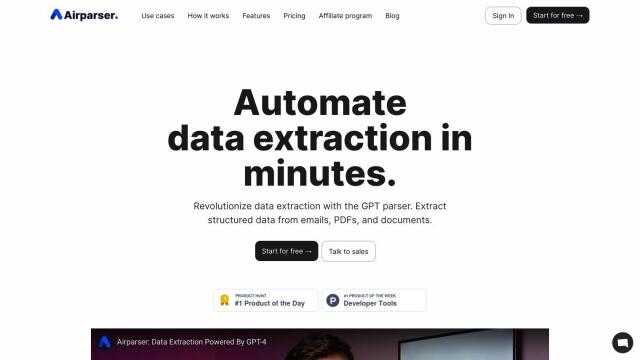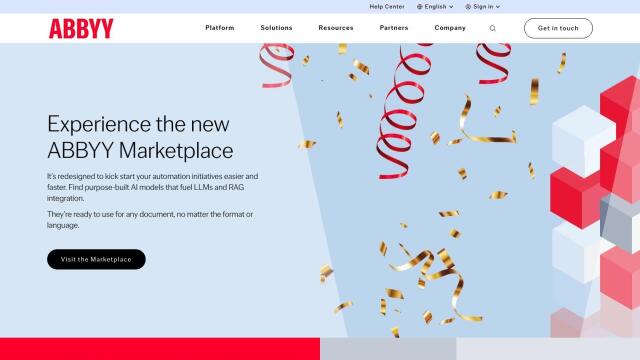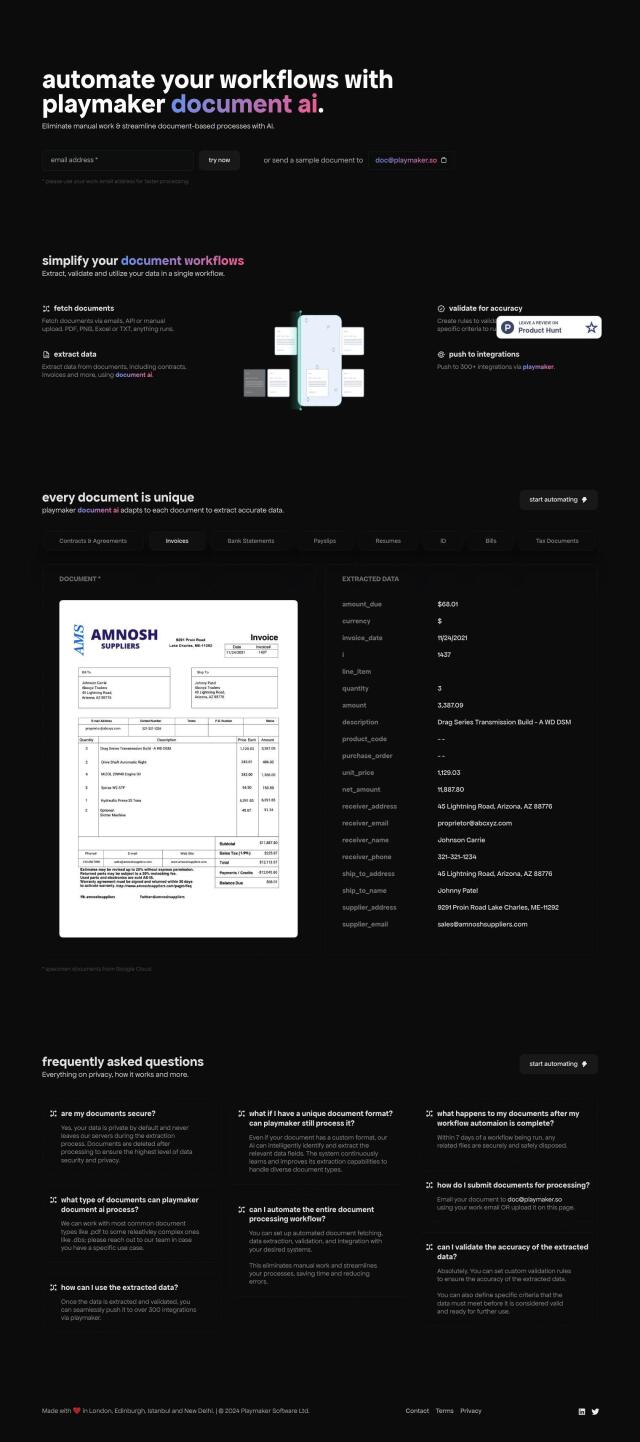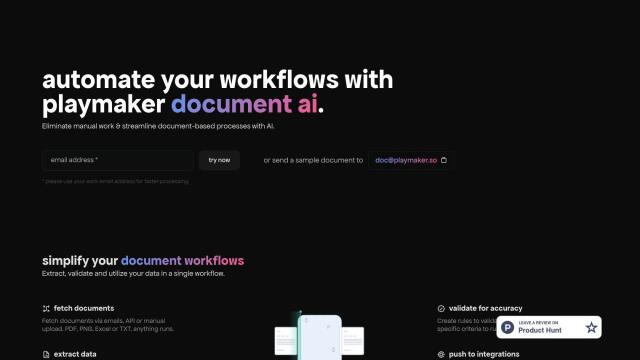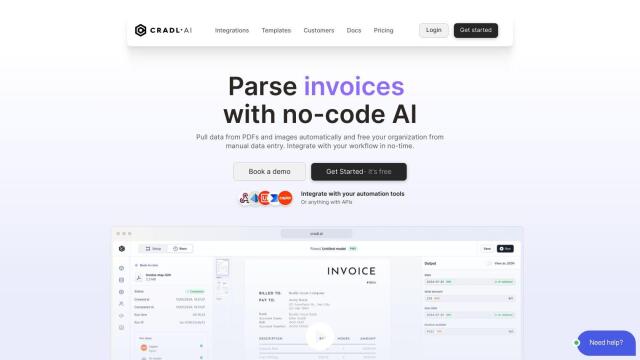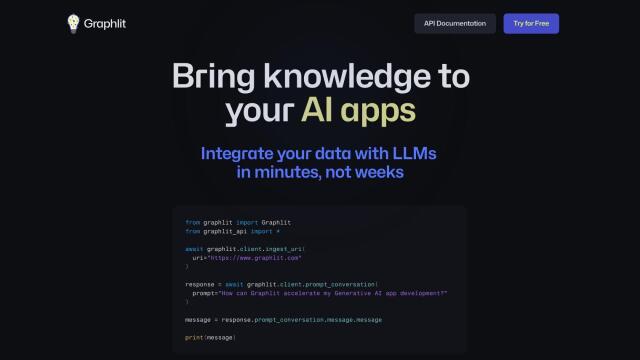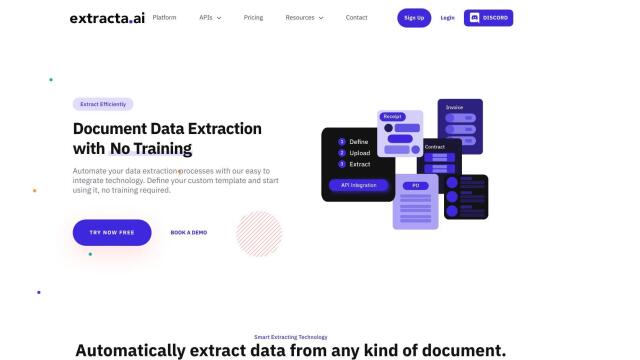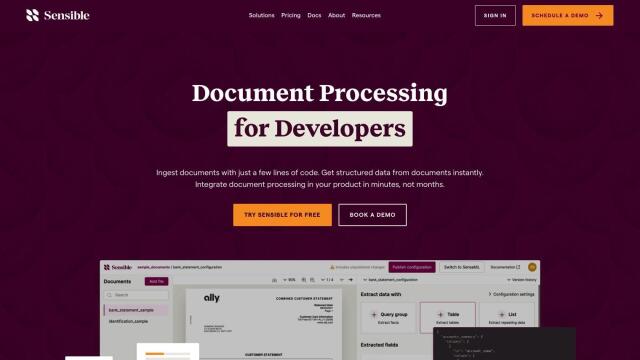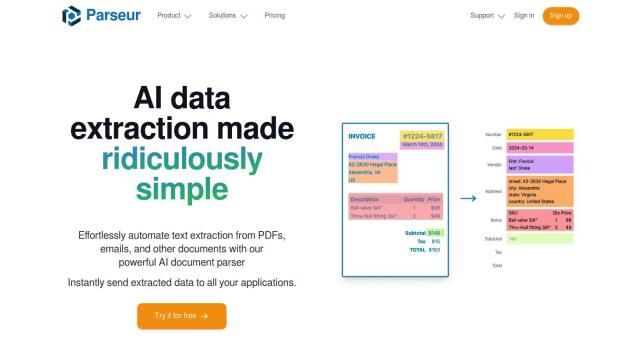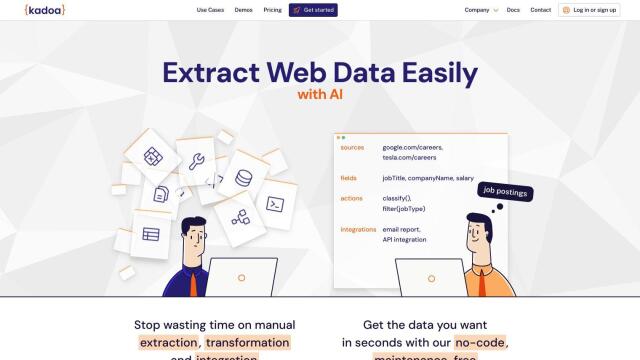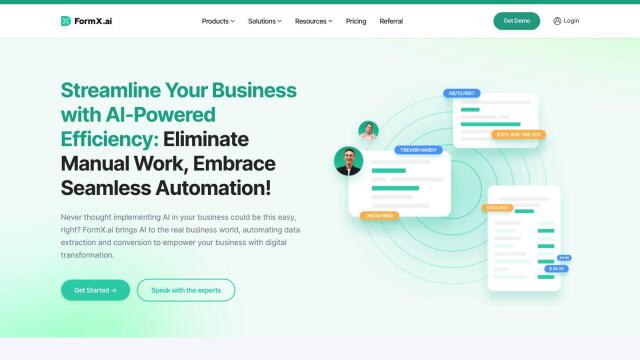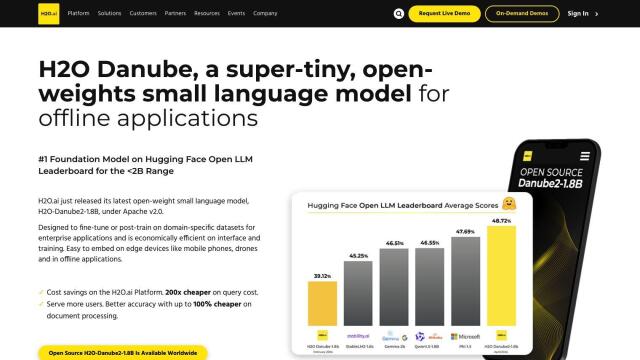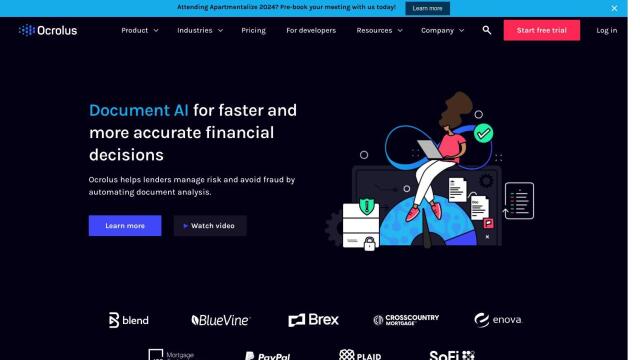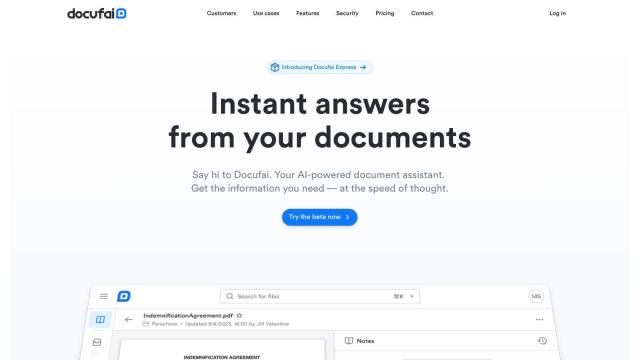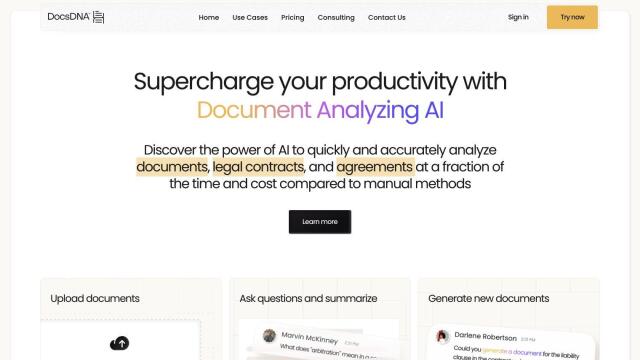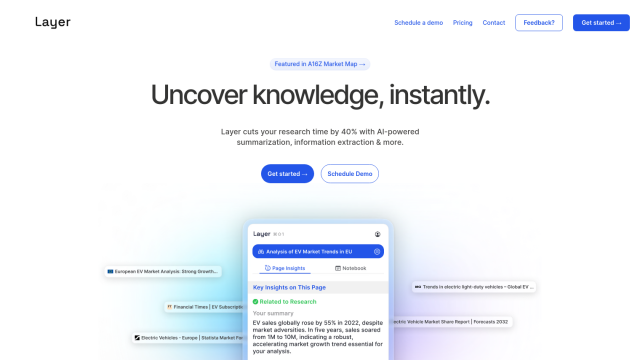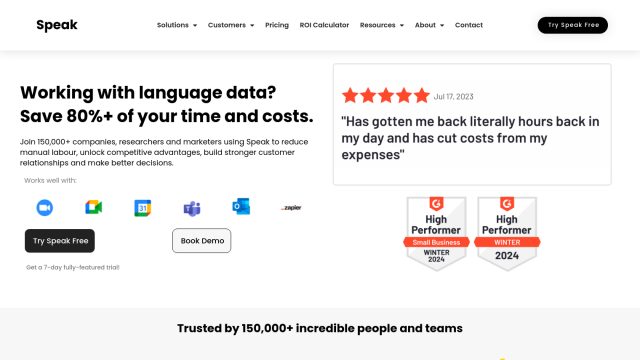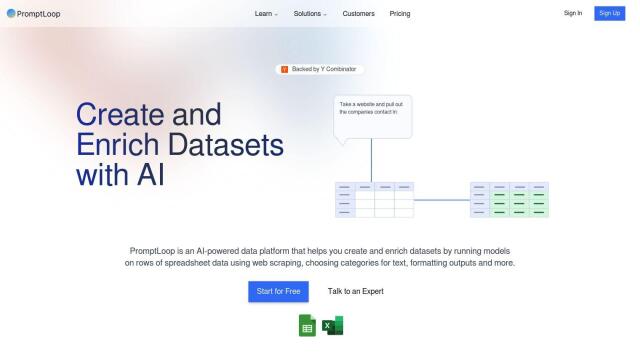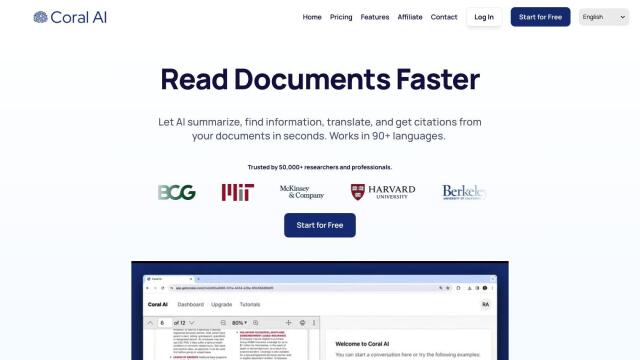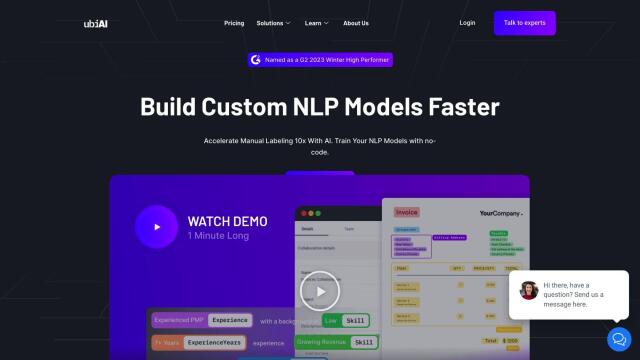Question: Can you recommend a tool that extracts structured data from unstructured text and documents at scale?
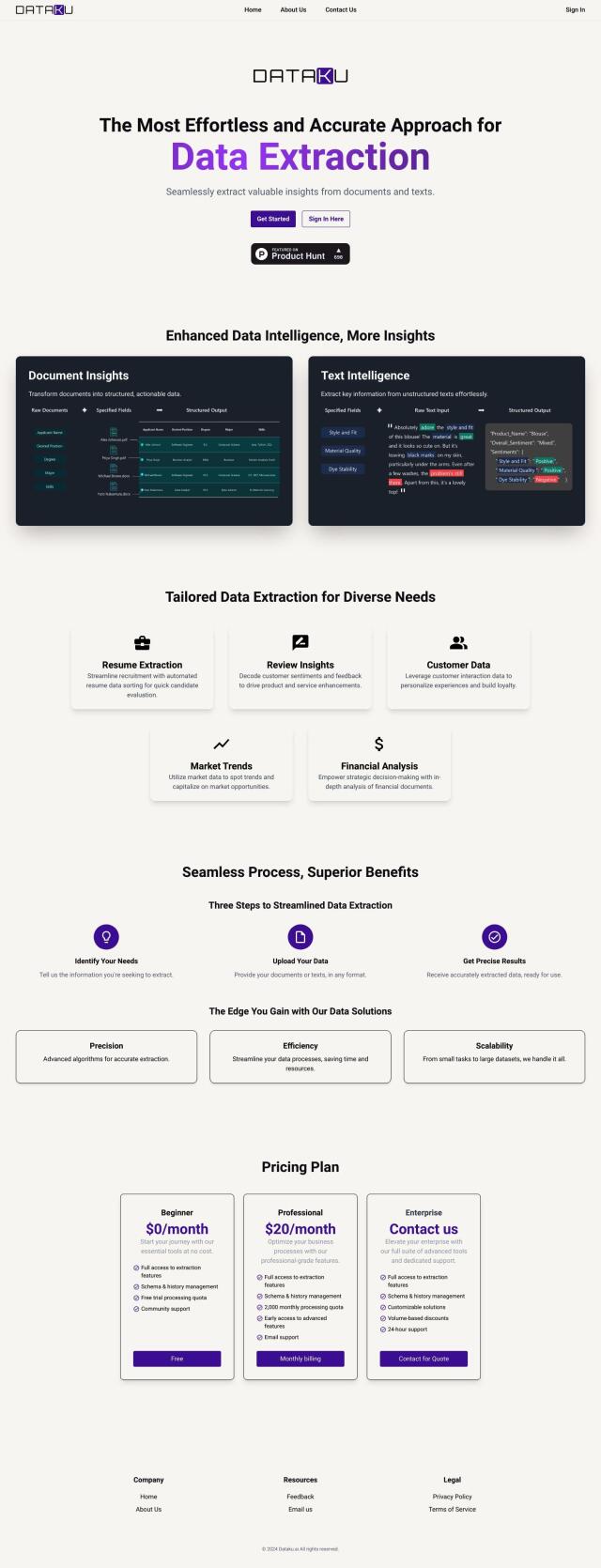
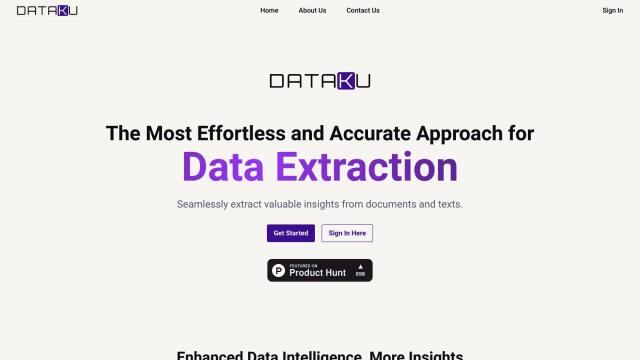
DATAKU
If you need a heavy-duty tool to extract structured data from unstructured text and documents at scale, DATAKU is a good option. It uses Large Language Models (LLMs) to transform unstructured text and documents into structured data. With tools like Document Insights, Text Intelligence and Tailored Data Extraction, DATAKU can help with resume extraction, customer data capture, market trend analysis and financial document processing. The service comes in different pricing tiers, so it's available for light or heavy use.

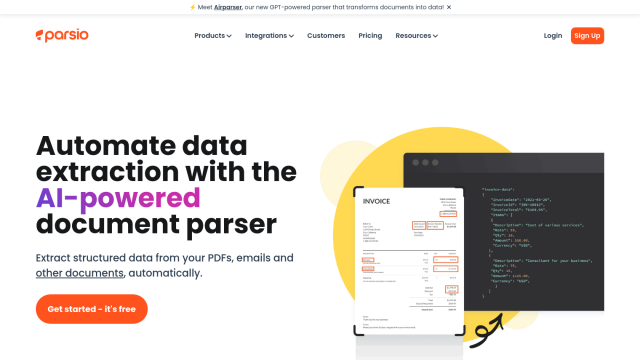
Parsio
Another good option is Parsio, which uses AI and OCR technology to extract data from documents like emails and PDFs. Parsio can send extracted data to a variety of destinations, including Google Sheets, CRM systems and more than 6,000 other apps. With features like table extraction and multilanguage support, it's designed to help you work more efficiently and get rid of tedious data entry tasks. Its integration with popular tools like Slack and QuickBooks makes it a good option.

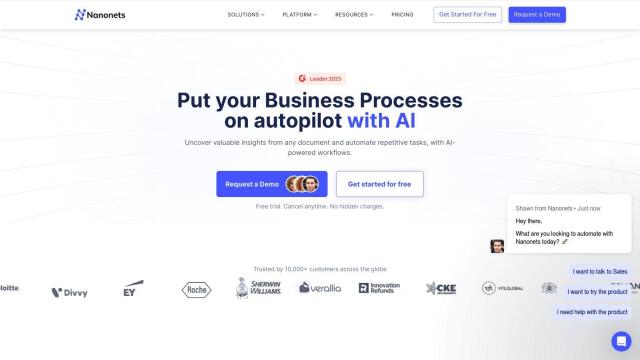
Nanonets
Nanonets is another option, particularly if you want to automate repetitive tasks and extract useful information from unstructured data in many sources. Its AI-based data extraction and enrichment abilities, combined with flexible export options, are good for industries like finance and health care. Nanonets protects data privacy and adheres to standards like GDPR and HIPAA, so it's a good option if you need to handle sensitive information.

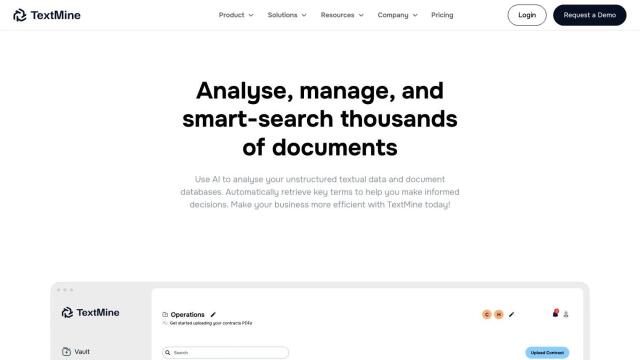
TextMine
If you need a full-featured document management system, TextMine offers AI-based tools to convert unstructured data into structured data sets. Its tools include Vault for structuring data, Scribe for creating smart forms, and Legislate for advanced search and data extraction. TextMine is designed to automate tasks and reduce risk, and it's a good option for business-critical documents.

